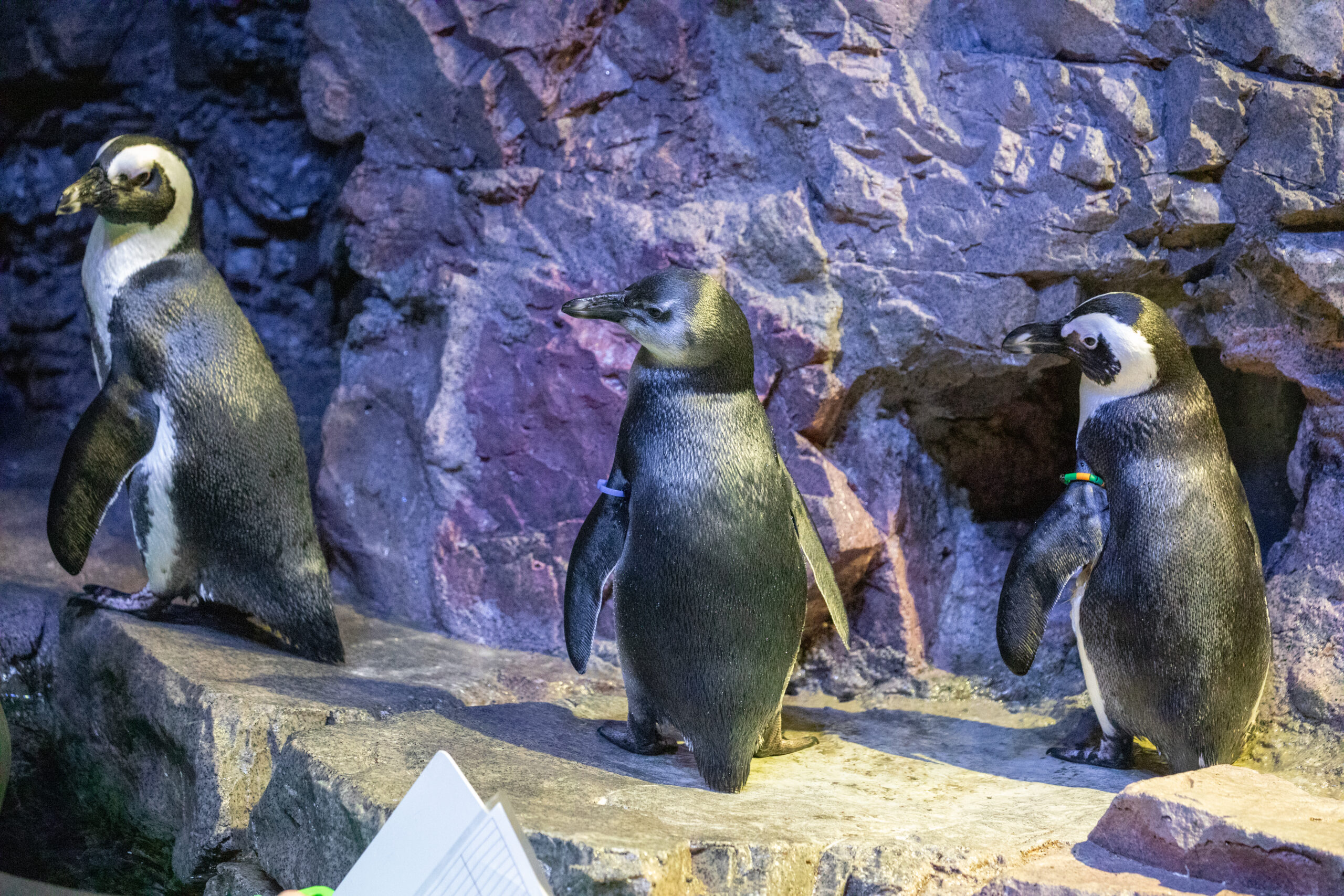The Aquarium will be closed to the public on Wednesday, April 2, for an internal staff event. Regular operating hours will resume on April 3.

BOSTON, MASS. (July 9, 2024) – Visitors to the New England Aquarium will be able to see the final two African penguin chicks born this year, “Oyster” and “FitzPatrick,” on exhibit tomorrow, July 10, following months of care behind the scenes. The two chicks will be joining “Bunker” and “Althea,” who went on exhibit at the end of June.
*PHOTOS AND VIDEO AVAILABLE HERE WITH CREDIT TO NEW ENGLAND AQUARIUM*
FitzPatrick hatched at the Aquarium on April 8, 2024, and can be identified by the blue bracelet on his left wing. Oyster followed on April 18 and now sports an orange bracelet on her right wing. Born to first-time penguin parents Namibia IV and Jahleel III, experienced foster parents Harlequin and Durban supported the new parents by “fostering” the eggs during the incubation period, and raised FitzPatrick, to allow Namibia to focus on learning how to care for Oyster.
“It is so exciting to have our final two penguin chicks join the rest of the colony on exhibit,” said Mia Luzietti, penguin trainer at the New England Aquarium. “This is the first time since 2019 that we have had multiple chicks go on exhibit in the same year, which is a testament to our team’s commitment to supporting the Species Survival Plan for this endangered species.”
The chicks’ names have an educational and conservation tie. FitzPatrick was named after the FitzPatrick Institute of African Ornithology, or the Fitztitute. Affiliated with the University of Cape Town, the Fitztitute promotes and undertakes scientific studies involving birds, as well as maintains biological diversity and the sustained use of biological resources. Oyster’s namesake stems from the Oyster Cliffs mainland breeding site in Namibia, which are caves that are inaccessible to land predators situated within Namib-Naukluft National Park.
African penguins are an endangered species that inhabit the coasts of South Africa and Namibia, which are threatened by the depletion of food from overfishing, climate change, and pollution. The Aquarium recently joined the Association of Zoos and Aquariums (AZA) SAFE African Penguin program, an international effort to protect and restore wild African penguin populations. The Aquarium also participates in the AZA’s African Penguin Species Survival Plan, which supports field conservation efforts and a thoughtful breeding program to help promote a sustainable future for these endangered penguins.
MEDIA CONTACT: Jenn Seabolt; 808-372-9065; jenn@teakmedia.com
